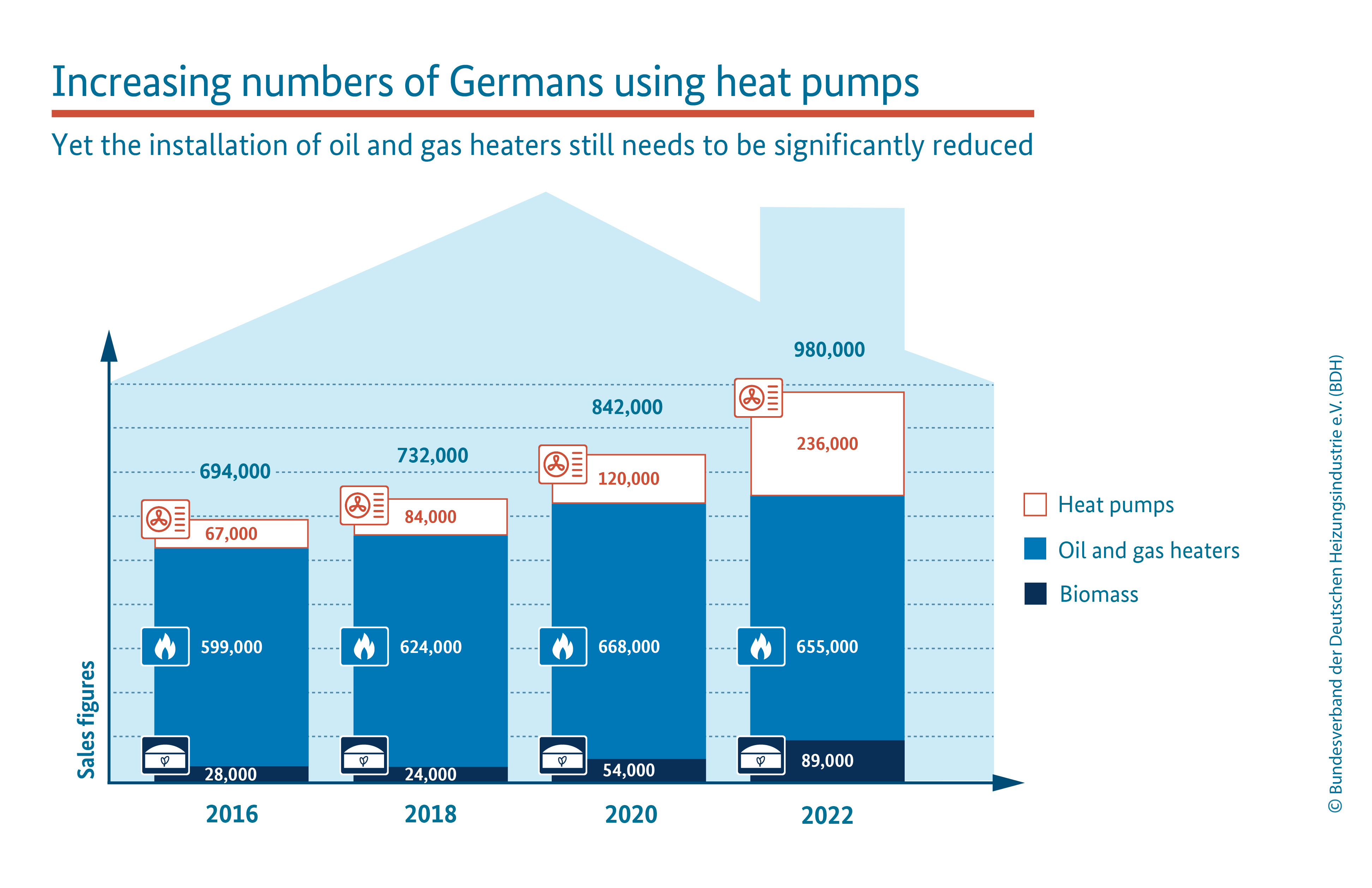 © BDH
© BDH
New heating systems to rely on renewable energy from 2024
This decision brought forward a corresponding stipulation in the coalition agreement by a year – from 2025 to 2024 – in view of the Russian war of aggression against Ukraine and the energy crisis it has caused.
More than 80% of the demand for heat is currently covered by the combustion of fossil fuel. Natural gas dominates in space heating in the buildings sector. Nearly every second household in Germany uses gas for their heating, almost 25% use heating oil and over 14% use district heating. The share of gas heating in newly installed heating systems was around 60% in 2021.
The Buildings Energy Act is therefore to be revised so that it is mandatory for newly installed heating systems to use at least 65% renewable energy for heating. Draft legislation has been created based on a concept paper and is currently being coordinated by the ministries. The obligation to use renewable energy for heating is only applicable to newly installed heating systems. Exceptions are possible. Existing heating systems may continue to be operated and broken systems may be repaired. If a natural gas or oil heater is beyond repair (heating failure), pragmatic transitional solutions and transitional periods spanning several years are provided for. Gas heaters can continue to be installed in existing buildings, if these heaters are operated using 65% green gases or in combination with a heat pump.
Whilst the new approach is generally open to any technology, the Federal Ministry for Economic Affairs and Climate Action assumes that the installation of heat pumps will continue to gather speed. Heat pumps are the best and most economical option for many buildings when it comes to the decarbonisation of the heat supply. Within the context of the 2022 German heat pump summit, stakeholders agreed to install 500,000 heat pumps per year from 2024.